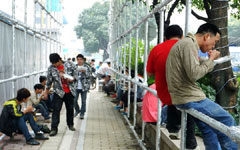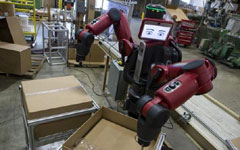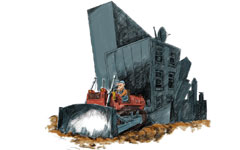Labor shortage looms in eastern China
(Xinhua) Updated: 2014-02-21 16:56In regional terms, the number of itinerant laborers in the east was 0.2 percent lower in 2013 than in 2012, 9.4 percent up in Central China and 3.3 percent up in the west.
Wages in Central China and the west are about 10 percent lower than those in the east, but they are attracting migrants due to low prices, and vicinities to homes and families, according to Yang.
|
 |
|
 |
|
 |
Employers are having to offer better packages to attract workers.
Li Liang, a Shenyang-based project manager under the China Railway Eighth Civil Engineering Group Corp, said the daily wage for a skilled worker at one of the corporation's construction site is about 300 yuan, while it was only 100 yuan in 2010.
"We did not cover insurance cost for some workers in the past, but now we are required to pay for every worker's insurance. Meanwhile, the wages have been climbing about 10 percent every year to about 3,500 yuan," said Li Chunfeng, general assistant manager of Shaoxing Jinhui Textile Clothes Co Ltd.
The monthly income of China's migrant workers averaged 2,609 yuan in 2013, up 13.9 percent year on year, according to the ministry's Yang.
Xiao Xingzhi, a professor with Dongbei University of Finance and Economics, said cities must allow more migrant workers to enjoy equal social security services as the urban ones so they can lead a stable life in the places where they are working.
The government has been highlighting the rights of migrant workers, who have left behind farm toil and even families to work in cities amid the country's industrialization and urbanization of recent decades.
The 18th National Congress of the Communist Party of China (CPC) in 2012 put forward a "new type of urbanization" which says "people come first."
The third plenum of the 18th CPC Central Committee last year incorporated human-centered urbanization into an approved policy, labelling it the core of urbanization.
On Dec 13, the CPC specified the primary task of human-centered urbanization as helping migrants to register as urban residents, which would give them and their accompanying families the same rights as any other urbanites.
- NHTSA says finds no 'defect trend' in Tesla Model S sedans
- WTO rare earth ruling is unfair
- Amway says 2014 China sales may grow 8%
- President Xi in Europe: Forging deals, boosting business
- CNOOC releases 2013 sustainability report
- Local production by Chery Jaguar Land Rover this year
- Car lovers test their need for speed in BMW Mission 3
- China stocks close mixed Monday

















